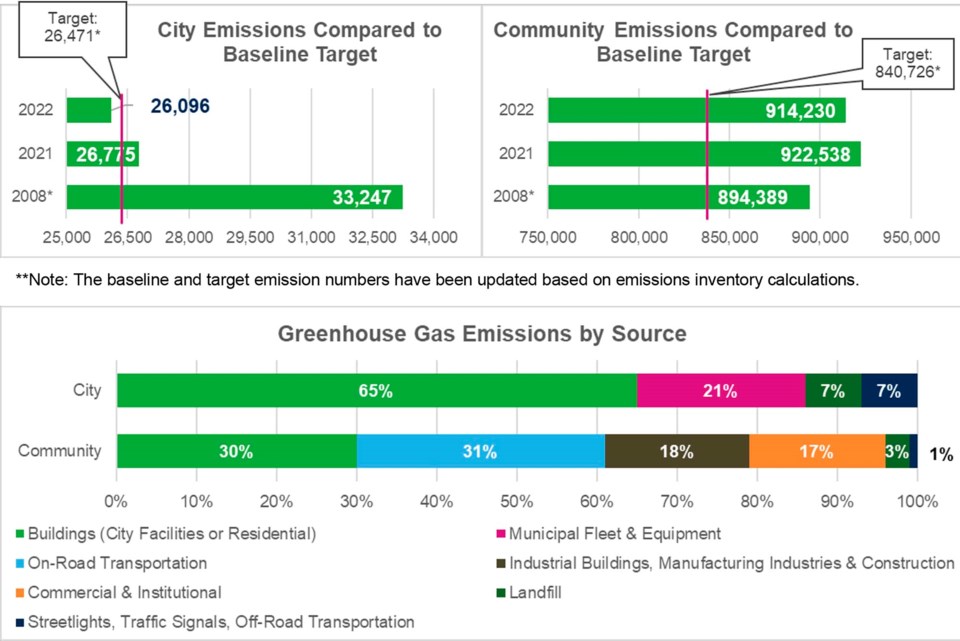St. Albert has teamed up with a national charity to overhaul its plans to reach a net-zero future.
QUEST Canada announced Oct. 12 that St. Albert was one of 10 western Canadian communities picked to take part in the launch of its Net-Zero Communities Accelerator program. Devon, Lethbridge, Medicine Hat, and Pincher Creek are also part of the program.
QUEST is a Canadian charity that supports communities in their efforts to reach net-zero greenhouse gas emissions. This particular program is backed by a $2 million federal grant and being run in partnership with groups such as the Municipal Climate Chance Action Centre.
St. Albert’s local action plan to save energy and reduce greenhouse gas emissions was written in 2013 and needs an update, said city environment manager Meghan Myers. The city plans to work with QUEST to update this plan and find new ways to address emissions from the community, which have seen little reduction in recent years.
St. Albert’s community-based emissions were two per cent above 2008 levels, states the city’s 2022 Environment Report Card — a far cry from the city’s goal to get them to six per cent below and the global imperative to get them to net zero. The Intergovernmental Panel on Climate Change has found that the world must cut greenhouse gas emissions by 45 per cent by 2030 and get them to net zero by 2050 to limit global heating to 1.5 C and substantially reduce the risk of droughts, fires, and death associated with two or more degrees of heating.
The accelerator is meant to help smaller municipalities without dedicated sustainability departments come up with ways to reach net-zero emissions, said QUEST programs and projects manager Seth Leon. The program looks at a community’s energy use, greenhouse gas inventory, and other factors to create a plan to reduce emissions, and calculates potential benefits of doing so.
“Being more energy efficient should retain energy dollars in the community,” Leon said, and can create jobs and reduce operational costs.
Leon said QUEST started a test run of this program in 2020 with about 14 communities in New Brunswick, including the Town of Quispamsis. The program helped that town identify performance measures for its community energy plan and flag which of the plan’s elements the town should prioritize (specifically, it should start work on energy performance standards, public education campaigns for energy efficiency and water conservation, and a solar array by 2022). QUEST estimated that full implementation of the Quispamsis’s energy plan could save the town $10 million a year.
Myers said city staff are now collecting data to determine where the city is at in terms of emissions reductions. Staffers and the Environmental Advisory Committee will work with QUEST over the next two years to come up with new ways to shrink the community’s carbon footprint, which could include more electric vehicle chargers and an enhanced Clean Energy Improvement Program.
Myers said St. Albert residents interested in participating in this planning process should email [email protected].




